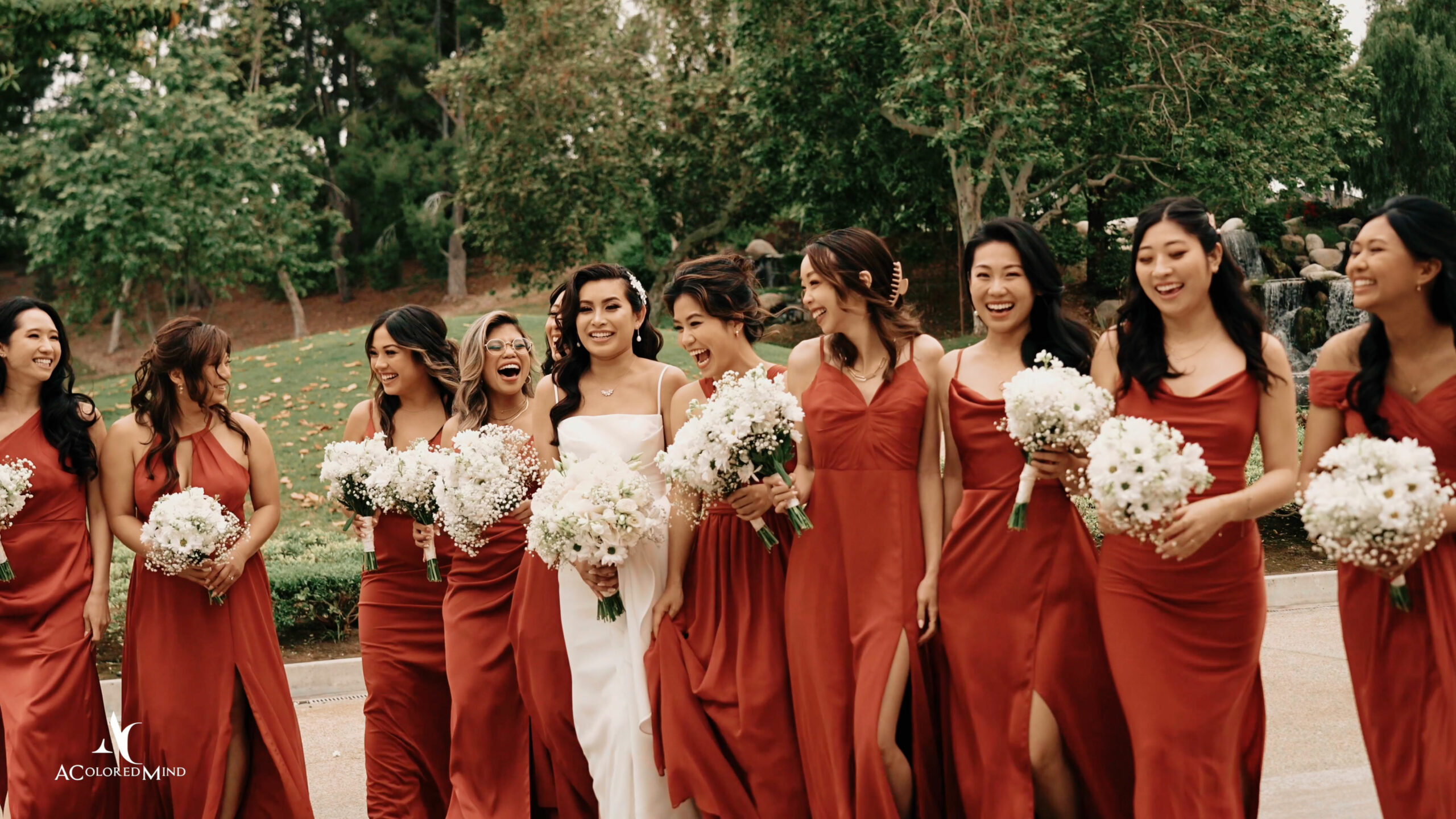REACH OUT: 213-999-8966
DROP A LINE: wedding@acoloredmind.com

Your wedding day marks the start of a new chapter in your life. You’re about to take your love story to the next level. Naturally, you have some dreams and expectations regarding this day. Wedding planning demands that you ask yourself how you can strike a balance between your dreams and financial responsibilities. Prudent spending will allow you to realize many dreams without crippling you financially. To spend wisely and understand the wedding cost average, you need a budget.
Creating a comprehensive wedding budget is one of the first and the most crucial steps of the wedding planning process. The wedding budget will have a direct impact on many other small and big decisions related to your special day. The budgetary framework will guide your decisions and help you effectively track and manage your expenses.

A realistic budget helps you stay on track with the wedding expenses and prevents you from going overboard. It can save you from huge debt accumulation, and serve as a sound beginning for a stable financial future.
Having clear discussions with your partner is essential. According to a survey, nearly 70 percent of engaged Americans struggle with financial challenges during wedding planning. Moreover, marriages struggle to survive due to financial strain; a wedding budget will allow you to celebrate your union without compromising your financial plans.
The budget gives you a clear idea of how much you can afford to spend on various aspects of the wedding, so you can make decisions confidently and without unnecessary stress/worries. Managing the expectations of families is usually tricky, but with a budget, everyone involved understands the financial constraints and boundaries, so you won’t have to justify every decision.

A good look at your personal finances will tell you how much you can spend on the wedding without putting yourself through undue pressure. Prioritize all necessary expenses, and ensure that you can cover those without accruing debt.
The guest count is a factor that impacts a whole set of expenses, including catering and invitations. You need a fairly accurate estimate of the guest count to budget well.
The location and the venue also influence various other expenses, such as transportation, guest accommodation, and rental fees. A high-demand venue in a popular location will typically cost more. You will also need to take into consideration the variation in costs due to factors like season. Depending on the venue you choose and the services offered, the cost of decor and vendors may come under venue costs or you may need to account for them separately.
The expenses related to the attire of the bride, groom, and the wedding party will add up, and need to receive an allocation from the budget. Included in this are the costs of alterations, accessories, hair, and makeup.

In addition to those mentioned above, here are some other factors you need to consider:
In 2023, the wedding cost average for couples in America was approximately $30,119 on weddings. This does not have to be your budget. It can be higher or lower depending on your financial capabilities and your preferences. Your wedding can be as simple or as extravagant as you need it to be. It’s you, your partner, and the contributing parties who need to get together and decide how much to actually spend on the wedding. You can have a low-budget wedding for as little as $5000, while on the higher end, weddings can go beyond $100,000.

The important thing to remember is that whether you spend more or less, you’re still going to start a loving journey with your partner. You have to prioritize what matters most to you and your partner. Extravagant weddings are not a necessity, and you do not have to live up to societal expectations if it’s going to destroy you financially. Don’t spend so much that you struggle to meet the initial after-marriage expenses, such as the honeymoon costs, rent/monthly house installment, and groceries. Neither is it a good idea to be so stingy that you break your partner’s heart and offend close family and friends (Low budget means fewer guests). If you have a small budget, you can explore alternative creative ways (such as DIY or thrift decor and a backyard venue) to attain your desired wedding experience without breaking the bank.
Your wedding is a special event, a milestone in your life, and the expenses may go beyond your current savings. In that case, stay away from expensive personal loans. Go for small loans from apps like solo funds, as these often have a fast and easy application process along with other favorable terms.
Decide how much you’re going to spend in this way:

You’re not done once you’ve set the wedding budget. It’s just the beginning. The budget will guide you throughout the planning process. You will need to track and manage your expenses meticulously. If your priorities change (it is a possibility), you may have to review and adjust your budget. By carefully setting a budget, you will come one step closer to the wedding of your dreams.